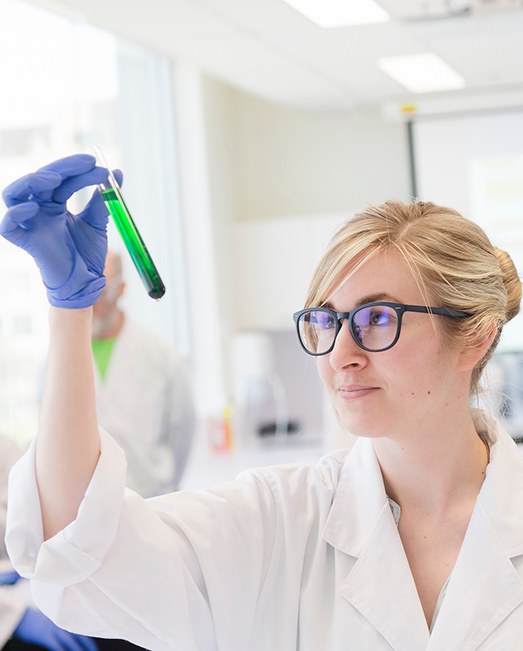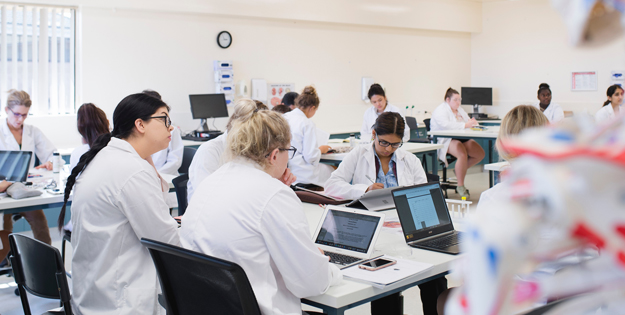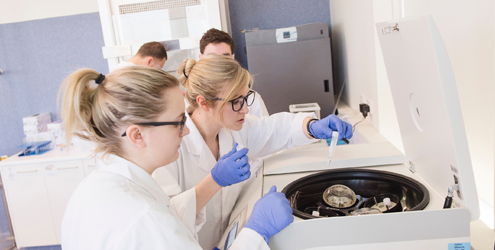Study
Copyright@ Australian Catholic University 1998-2026 | ABN 15 050 192 660 CRICOS registered provider: 00004G | PRV12008
Copyright@ Australian Catholic University 1998-2026 | ABN 15 050 192 660 CRICOS registered provider: 00004G | PRV12008

If you have a passion for science and like the idea of life in the lab, a biomedical science degree could be your answer. This is a degree that delivers options, and there’s more to it than you might realise.
We asked ACU biomedical science lecturer Dr Jonathan Teoh where a biomedical science degree can lead.
“Graduates can work in research labs as research assistants or scientists, lab technicians within pathology labs or equipment technicians in sleep, respiratory or cardiovascular clinics. Graduates are trained in technical skills such as undertaking ECGs, lung function tests, pipetting, measuring and mixing chemicals, using a microscope and implementing statistics and data analysis. These are all useful skills for a career working in a research lab.”

“Biomedical science graduates who are interested in a research career can undertake further training through a postgraduate degree like a masters or PhD. These courses will help train you in the necessary skills – think lab techniques or writing publications and applications for research grants – needed for a career as an academic or research scientist.
“Moving into a research career will enable students to be involved in cutting-edge medical research that is being undertaken throughout the country. You could contribute towards the discovery of novel treatments for common diseases such as cancer, stroke or Parkinson’s disease.”
“Students graduating from a biomedical science degree will be trained in how to convey science-based messaging, which will be studied in the unit Communicating Ideas in Science (BMSC201). They will also be able to understand the basic function of the human body, as well as the issues related to key diseases that affect body systems.
“Combining this knowledge of how the body functions and being able to communicate complex information clearly to the general public would enable graduates to work in marketing or sales roles in health care companies. They will also be able to demonstrate good written and verbal communication skills in a health care setting.”

“Biomedical science students undertake epidemiology and bioethics units as part of their course program. This will prepare you with basic knowledge about the ethical issues surrounding public health and key public health policies around the world. This is a great foundation for further study in a Master of Public Health.
“Most of the units taught within the degree have some public health content embedded within them. For example, in Human Body in Health and Disease 1 (BIOL124) and Human Body in Health and Disease 2 (BIOL204) you will study statistics on the prevalence of obesity and diabetes cases both within Australia and worldwide.
"These units will also highlight the increased risk of cardiovascular diseases in select communities, such as Indigenous groups. Additionally, biomedical science students undertake a biostatistics unit that trains you to be able to understand, analyse and make sense of big data sets, which are all important skills to acquire if you want to pursue a public health career.”
Think biomedical science is for you? Discover more.
Copyright@ Australian Catholic University 1998-2026 | ABN 15 050 192 660 CRICOS registered provider: 00004G | PRV12008